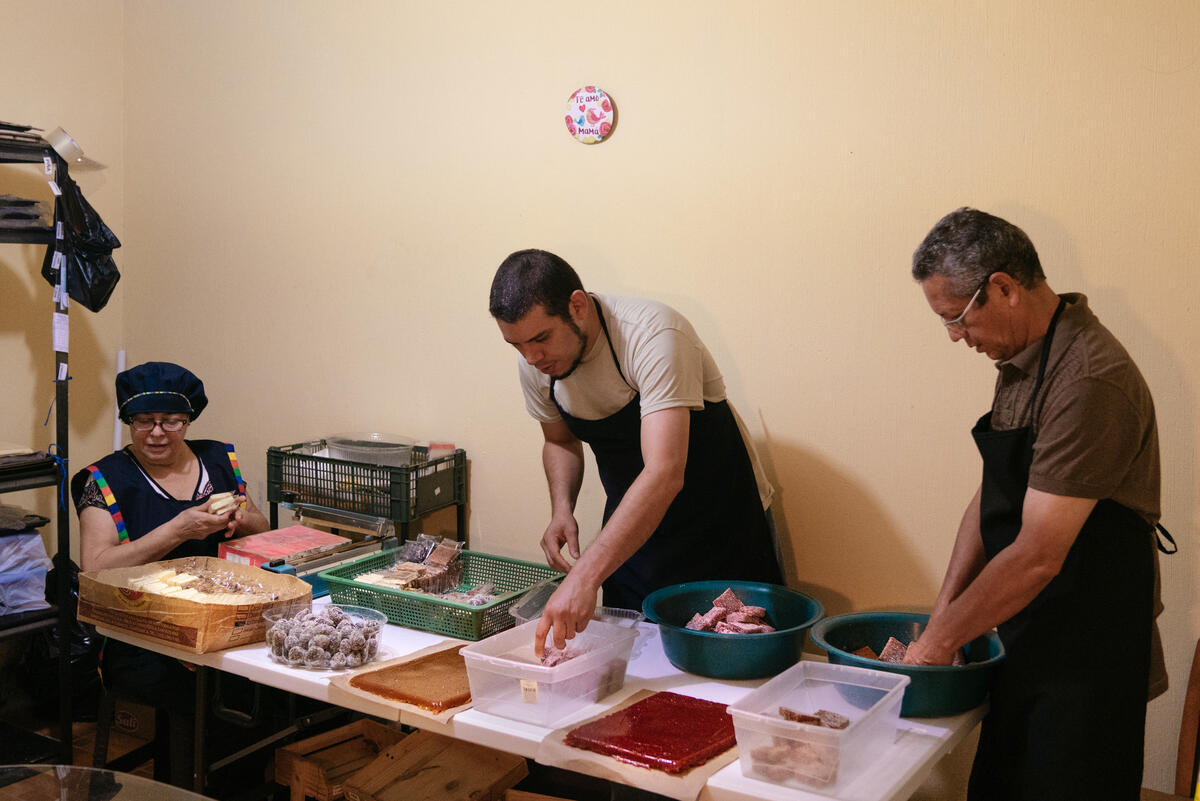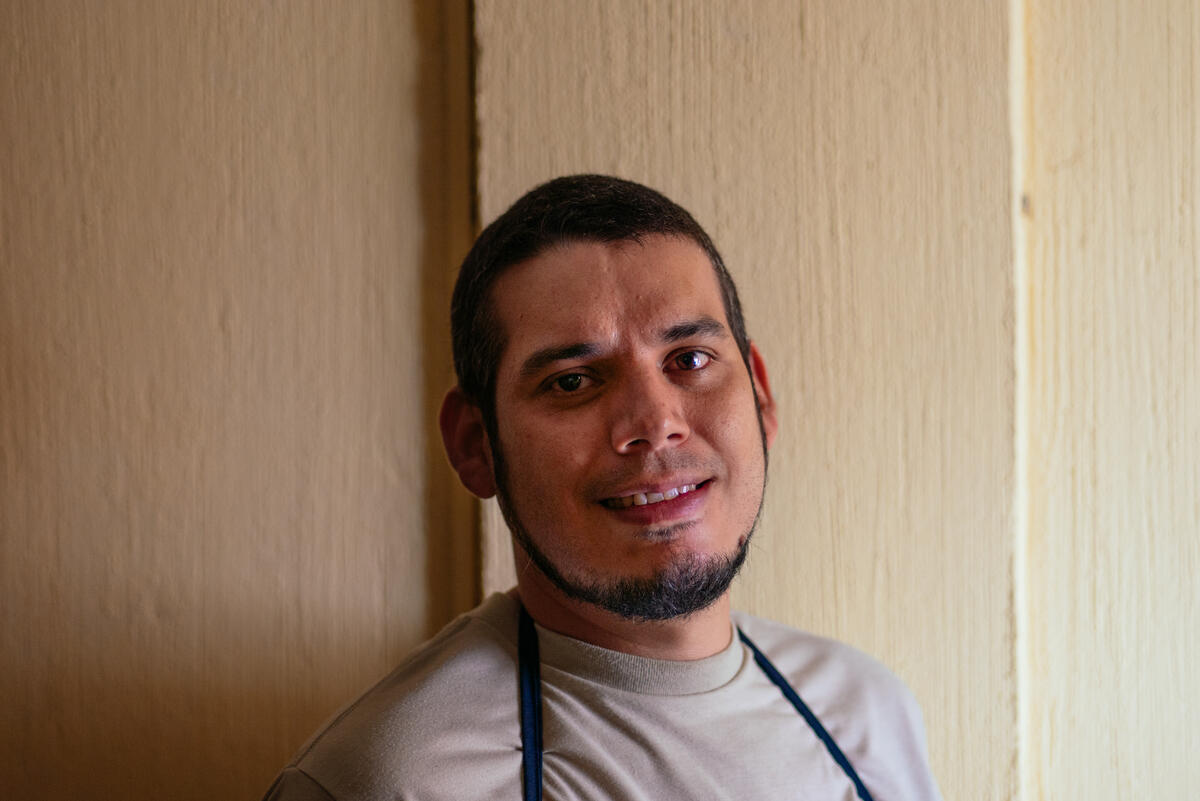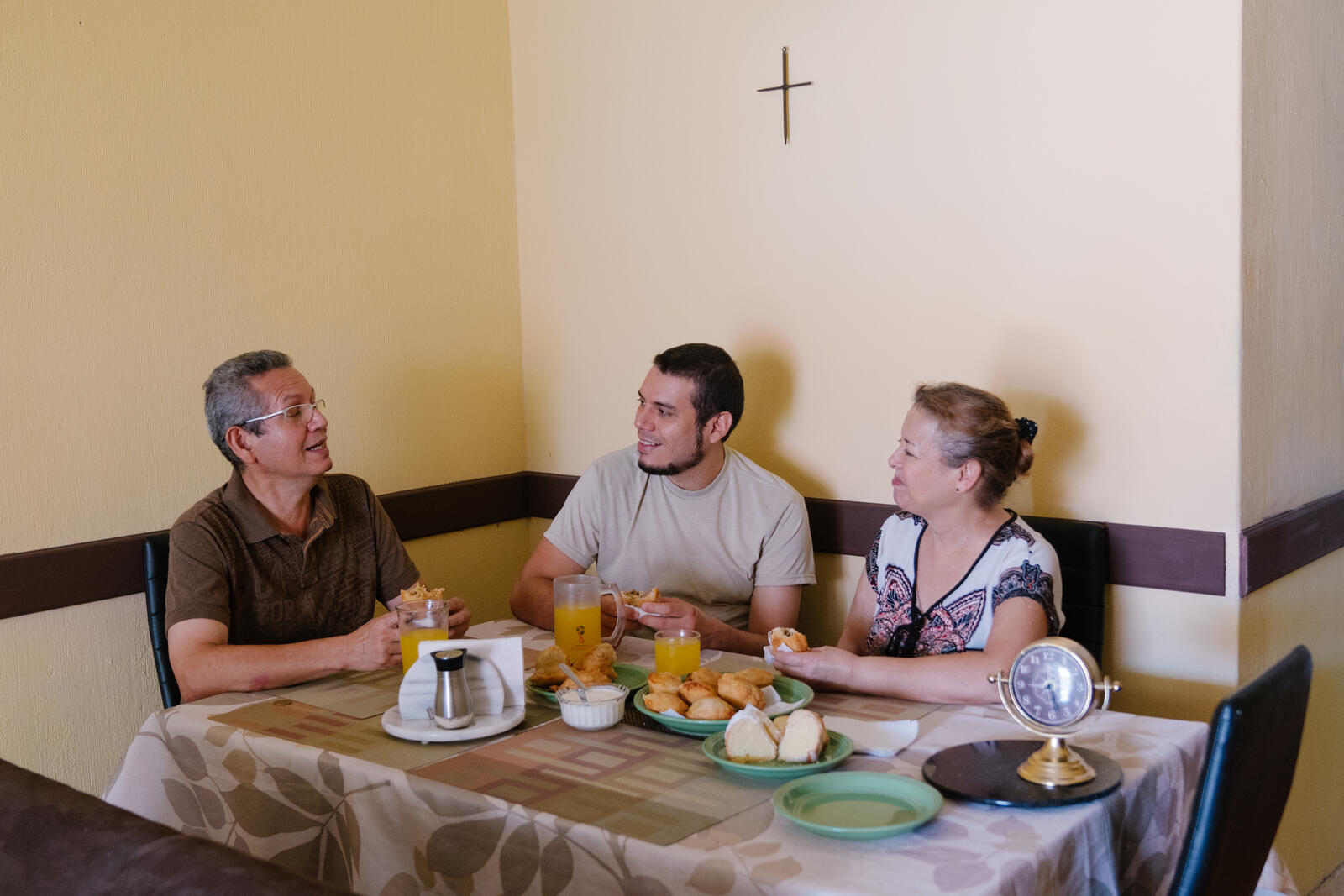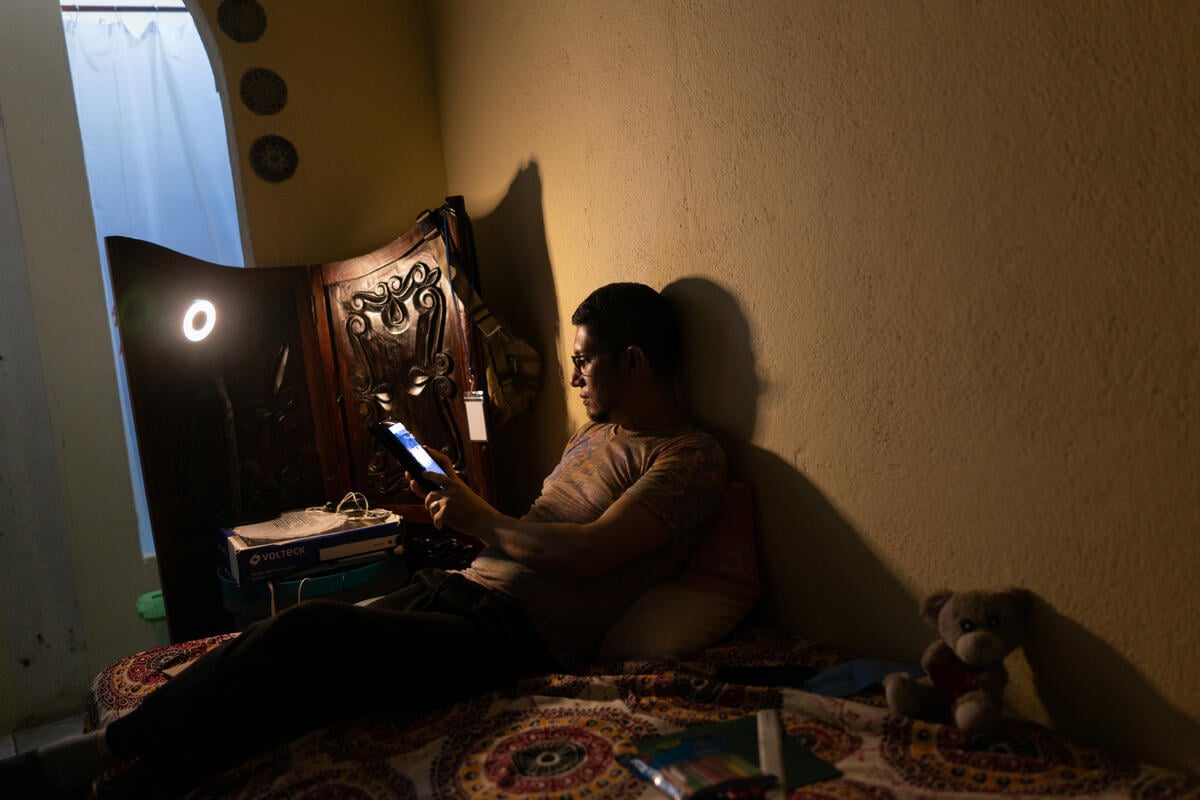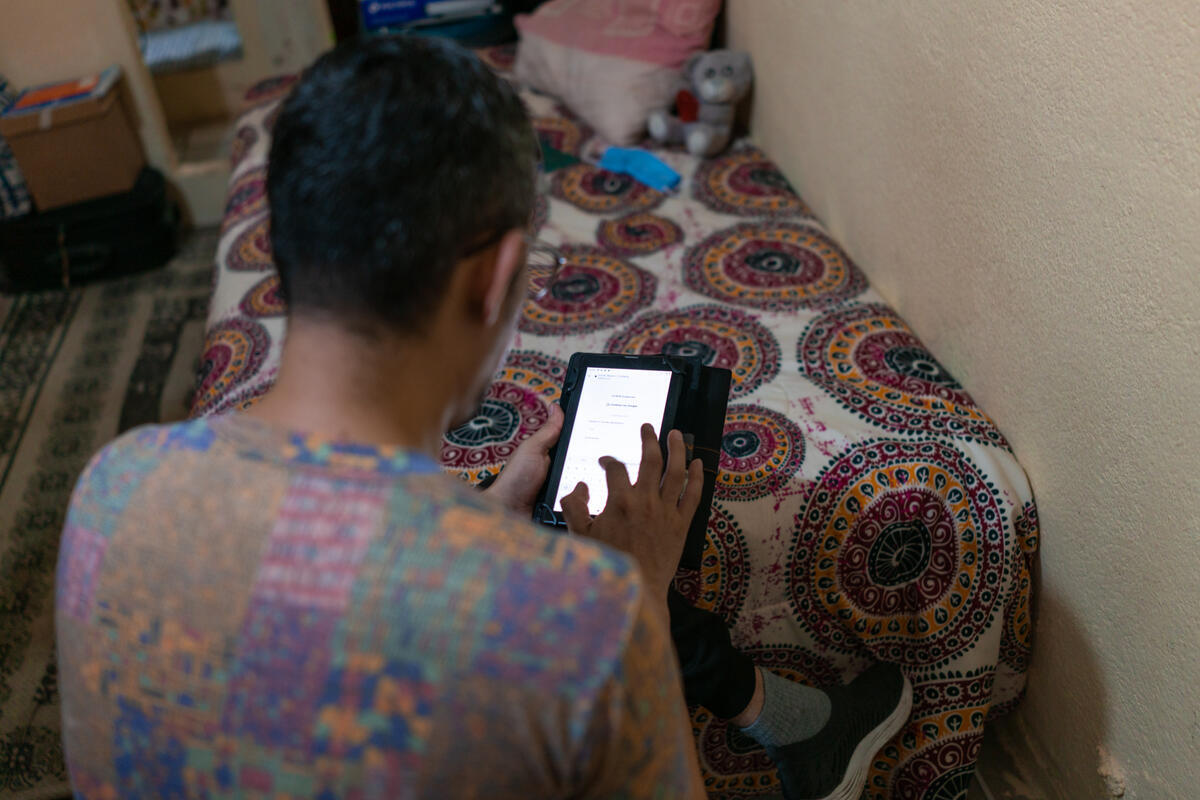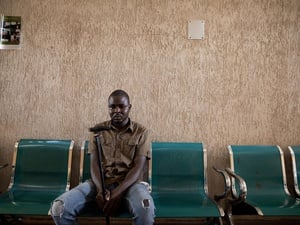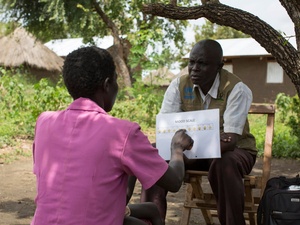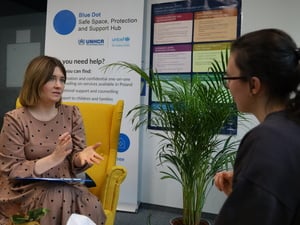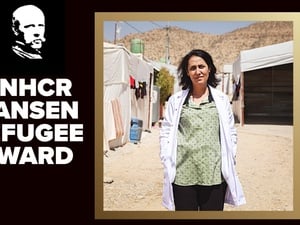Mental health issues can be both the driver and result of displacement

Mental health issues can be both the driver and result of displacement
Leo Medina was just a teenager when he received a chilling diagnosis: schizophrenia. That was back home in Venezuela in the late 1990s, when the South American nation was an oil and gas powerhouse and imported products were widely available, including the drugs Leo needed to keep his mental illness in check.
But as Venezuela slipped, over the past decade, into a profound economic and political crisis, Leo’s medicine became harder and harder to find. Mirroring the food shortages in the country’s supermarkets, the shelves of Venezuelan pharmacies gradually emptied as medicines became more scarce.
Faced with a dwindling supply, Leo’s parents, Héctor and Yesmaira, had no choice but to cut his daily dose. Leo had been taking four pills daily, “but as our stock waned, we went down to three, then two and, finally, just one,” Héctor recalled.
Leo spiralled, overcome by a terrifying series of mental health crises.
“I lost interest in everything,” said Leo, who is now aged 36. “I spent a year and a half in a very bad state: I felt depressed and couldn’t work. I just cried and shouted. I didn’t want to continue living.”
The situation was so critical Leo’s parents joined the ranks of the now more than 6 million Venezuelans who have fled the country in recent years, leaving behind everything – a comfortable home, several cars and a thriving desserts business – in a bid to secure Leo the lifesaving help he needed. The family went to Guatemala, where Leo’s sister had been living since marrying a citizen of the small Central American nation several years earlier.
“I spent a year and a half in a very bad state.”
Here, doctors at a public hospital immediately treated Leo, changing his diagnosis – from schizophrenia to bipolar disorder - and getting him the medication and treatment he needed. That was more than a year ago, and while there have been setbacks, the change in Leo has proved nothing short of remarkable.
“In Guatemala, we experienced a miracle,” said Héctor, adding that Leo, who was barely able to get out of bed when they first arrived in the country, has now taken on the lion’s share of the work in the nascent family business – making a traditional Venezuelan sweet confection – that the Medinas have restarted from scratch out of their modest rental home on the outskirts of Guatemala City.
Given the sheer scale of the humanitarian needs of people forced to flee their homes, the mental health issues of forcibly displaced people long tended to take a back burner. But studies have shown that those displaced tend to struggle more with certain mental illnesses than the population at large. A 2019 study published in The Lancet showed “the burden of mental disorders is high in conflict-affected populations,” while a 2020 study in Plos Medicine suggested that “adult refugee and asylum seekers have high and persistent rates of post-traumatic stress disorder (PTSD) and depression.”
UNHCR, the UN Refugee Agency, is striving to make mental health and psychosocial support an integral part of its work – particularly amid the ongoing COVID-19 pandemic, with its accompanying spikes in isolation, loss of livelihoods and uncertainty about the future.
“In Guatemala, we experienced a miracle.”
And while mental health issues can sometimes trigger displacement, as they did for the Medina family, fleeing home is often so stressful that it can bring on mental health crises in people who had never before suffered from such issues.
That was the case with Óscar,* an events decorator and gay rights activist who was forced to flee his native Nicaragua in the wake of a wave of anti-government protests that swept the country in 2018. Óscar took part in the demonstrations, and as a result he said he was the target of credible death threats.
A life-altering ordeal followed, as he left home and, barely escaping detention on numerous occasions, eventually slipped across the border and into neighbouring Costa Rica. But with tens of thousands of other Nicaraguans also fleeing political persecution and seeking asylum in Costa Rica, it was hard for him to make ends meet and eventually he decided to move once more, this time northward to Guatemala.
“I’ve been on an emotional rollercoaster.”
Here, Óscar has found safety, but not peace: The stress of being a wanted man back home, the rapid-fire changes in his life and the distance from his family and friends all have taken a devastating toll.
“I’ve been on an emotional rollercoaster and have gone through a deep depression,” he said, sitting on a bed that takes up most of the small, rented room in Guatemala City where he lives. “I even got to a point that I never imagined being where I had to go to a psychiatric hospital… Once I went for like five days without sleeping and I thought I was going crazy.”
Óscar briefly went on antidepressants to see him through the worst of the crisis, but says that what has helped the most are the weekly sessions with a therapist that UNHCR helped provide. He is now at the point where he can support himself and has again begun to look with hope toward the future.
“I have setbacks and there are still moments when I just don’t want to get out of bed, but I know that I have to keep going,” said Óscar, whose youthful looks and slight stature bely his 37 years. “Although I may look physically weak, I have a very strong character.”
*Name has been changed for protection reasons.


